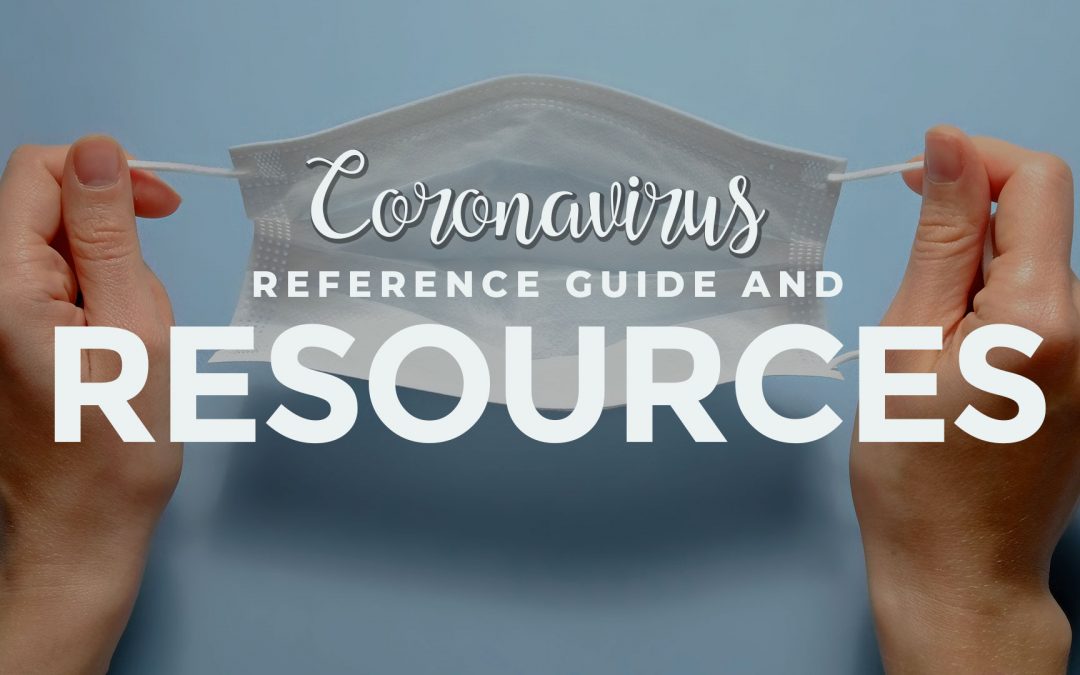
Coronavirus Reference Guide and Resources for Assisted Reproduction
This reference guide is meant for those persons that are going through Assisted Reproductive Services during the current COVID19 pandemic. Please note that this is not a substitution for a legal consult, which you should obtain from your attorney for your particular case. Additionally, the circumstances and current guidelines are changing on a daily basis and while I will try to continue to update this accordingly, please refer to your attorney for the most up to date information pertaining to COVID19 and your fertility journey. Lastly, this is not meant to give or replace any medical advice and a physician shall be consulted with the medical aspect as to any procedure discussed.
Intended Parents & Surrogates in Surrogacy
Contract Terms
The COVID19 pandemic has presented unique issues that have not before been contemplated in most, if not all, surrogacy contracts. Here are some of the contractual terms the pandemic may affect and may want to discuss in conjunction with your attorney when drafting the surrogacy contract:
- Are there provisions specifying the precautions the parties should take in light of the pandemic and steps to take if coronavirus is suspected?
- If there is an initial escrow deposit or a monthly reimbursement that begins when the contract I signed? If treatment cycles have been postponed, you may want to modify the commencement of certain payments based on the delays occurring at clinics, if applicable at that time.
- What is the term of the Agreement? You may want to consider the term of the Agreement in consideration of any possible future delays in medical treatment in the event of a new outbreak.
- Are there possible situations where another lock down or government closure may affect your ability to comply with the Agreement? In the last few months this has applied more towards international couples as bank closures and flight cancellations had a large effect on contractual compliance, but something to consider nonetheless.
Timeline
Reproductive Endocrinology clinics all currently have their own protocol as to safety precautions and day to day procedures when it comes to COVID19, so I recommend speaking directly with your cycle coordinator at that clinic to see if new transfer/ treatments are taking place and whether there may be a delay or change in practice at this time. Currently, per guidelines, most clinics can have a “measured presumption of care”. Please see below for the CDC clinical guidance recommendations and the ASRM current recommendations for scheduling treatment cycles.
- Centers for Disease Control and Prevention; Clinical Guidance Management of Patients https://www.cdc.gov/coronavirus/2019-ncov/hcp/clinical-guidance-management-patients.html
- Society for Assisted Reproductive Technology; A Message for Patients from SART https://www.sart.org/patients/covid-19-alert-for-patients/
- American Society of Reproductive Medicine; Patient Management and Clinical Recommendations During The Coronavirus (COVID-19) Pandemic https://www.asrm.org/news-and-publications/covid-19/statements/patient-management-and-clinical-recommendations-during-the-coronavirus-covid-19-pandemic/
Coronavirus Effects on the Fetus; Maternal Health
Medically little is known about the transmission of COVID-19 in pregnancy, but so far the studies show that there is no vertical transmission from pregnant woman directly to baby in utero and the few studies that are available show that pregnant women are not necessarily at a higher risk of transmission or of adverse results than the general population. Please refer to your clinic and doctor to discuss their practices and guidelines/ plan for resuming treatment and your treating physician’s recommendations for safety during the pregnancy as well as COVID19’s effects on pregnant women.*
- Society for Assisted Reproductive Technology released an example handout which states: (1) There is currently no scientific evidence showing that COVID-19 is transmitted to or carried by oocytes (eggs) or sperm. (2) There is very little research on a pregnant woman’s susceptibility to catching COVID-19. (3) There is no current approved treatment (medication) for COVID-19 (4) The small amount of data reported out of Wuhan, China and New York does not show any definitive evidence of intrauterine fetal infections with COVID-19; therefore, it is believed that the risk of transmission of COVID-19 to a fetus in utero is low or non-existent.
- ACOG: not giving recommendations to not be pregnant-
- ASRM: delay in new treatment cycles; most reopening at the moment
- World Health Organization; Q& A Pregnancy, Childbirth and COVID19: https://www.who.int/news-room/q-a-detail/q-a-on-covid-19-pregnancy-childbirth-and-breastfeeding
- The American College of Obstetricians and Gynecologists; Coronavirus, Pregnancy, and Breastfeeding: A message for Patients https://www.acog.org/patient-resources/faqs/pregnancy/coronavirus-pregnancy-and-breastfeeding
Travel
If you are traveling by plane to a different state for the birth of your child, please arrive at least 2 weeks prior to the birth (some hospitals are imposing a quarantine and will not release the child to the parents if the parents were recently on a plane or came from a COVID-19 “hot spot”). To avoid any delays in union with your child or participation in the birth, arrive early and communicate with your hospital and attorney to stay up to date with current practices and procedures as all hospital have their own policies at the moment.
- Centers for Disease Control and Prevention; Travel Notices https://www.cdc.gov/coronavirus/2019-ncov/travelers/index.html
- Centers for Disease Control and Prevention; Travel Recommendations in the US https://www.cdc.gov/coronavirus/2019-ncov/travelers/travel-in-the-us.html
- US Department of State Country Specific Travel Information and Notices https://travel.state.gov/content/travel/en/traveladvisories/COVID-19-Country-Specific-Information.html
Birth
It is important to be up to date with hospital procedures as well as legal protocol during the COVID19 pandemic as timelines and typical procedures may be affected both in the hospital as well as in the courtroom/ administrative government offices.
- You may not be able to attend the birth. Most hospitals are currently allowing only one person to be present at the birth and that person cannot leave and come back or switch out with another person. Reach out to the hospital for their exact and most current policies and discuss the contract with your attorney so everyone knows ahead of time who that person will be.
- Some courts have limited staff or access so hearings may be delayed and certain Vital Statistics offices (for the birth certificate) may be closed or short staffed so there may be a delay in obtaining your child’s birth certificate. Currently in Florida, there are no significant delays in hearings, but many counties are experiencing a delay in obtaining the birth certificate.
International Clients
In addition to the topics listed above, there may be other issues with international clients during the COVID19 pandemic. You should discuss the following with your US attorney to ensure you have a plan and then a back-up plan in place during this time, as well as with the counsel retained in your home country to ensure the safest procedure and to be aware of the current allowances (especially for travel).
If you are already here in the United States and your baby is due soon, you may need to consider the following:
- You may not be able to attend the birth. Most hospitals are currently allowing only one person to be present at the birth and that person cannot leave and come back or switch out with another person. Reach out to the hospital for their exact and most current policies and discuss the contract with your attorney so everyone knows ahead of time who that person will be.
- If you are experiencing symptoms or have a high fever you should not go to the hospital for the safety of others. Additionally, some hospitals are screening visitors, so they may not allow you access if you are ill or running a fever.
If your baby’s due date is approaching, consider the following:
- Discuss the current restrictions in arriving to the US with your attorney as they may differ between countries. Many international parents are able to enter since their child born of the surrogacy is a US citizen, but please discuss with your attorney as the law of your state could affect this.
- You may need to work with your home country’s embassy and/or department of immigration to get a flight to the United States during the current flight restrictions, as some commercial flights are completely canceled to and from certain countries. Discuss this with your attorney so they can provide what you may need to try and get a flight to the US during these times. This process varies on a case by case basis, but certain paperwork can be provided to help your case at the embassy or department of immigration in your home country.
- Make sure you have an up to date passport and VISA for travel and check the expiration. Renewing might be delayed in your home country due to current closures.
- Try to get to the US at least 14 days prior to the birth to avoid the possible quarantine requirements of the hospitals as discussed above.
- Consider not being able to get to the US for the birth. In the event you are not able to arrive, discuss the legal ramifications and possible options for your child’s care so that all of the proper legal arrangements can be made. This way you will have the proper documents drafted, signed, and notarized, and everyone can be informed of the back-up plan.
- Some courts have limited staff or access (not allowing people to enter the court) so hearings may be delayed and certain Vital Statistics offices (for the birth certificate) may be closed or short staffed so there may be a delay in obtaining your child’s birth certificate. Currently in Florida, there are no significant delays in hearings, but many counties are experiencing a delay in obtaining the birth certificate.
- Flights for return back home may also be canceled/ nonexistent at this time, so start making travel arrangements and work with your home embassy as soon as possible to evaluate your options.
- Plan on staying longer than the originally quoted time frame post birth. This may affect your VISA depending on how long you have to stay so discuss options for extending your VISA with your attorney as there are allowances for extending your VISA under certain circumstances.
- If you cannot get to your home country right away for your child’s medical care, discuss options with your attorney for obtaining medical insurance in the US during your stay. This may involve applying for the Social Security Number as well. Please also note that social security offices may be closed or understaffed at this time, and the application process may not be as usual.
- Passport: Once your child is born and you have a birth certificate you must obtain a passport for the child to get back home. The passport offices are only taking expedited passport applications for people who have a “qualified life or death emergency” defined as a “serious illnesses, injuries, or deaths in your immediate family (e.g., parent, child, spouse, sibling, aunt, uncle, etc.) that require you to travel outside the United States within 72 hours (3 days).” (you need to have proof as in a death certificate or note from a physician). Given the restriction, most people are applying for a passport with the traditional timeline (not expedited) which is 6-8 weeks. Note*: Many are experiencing that the normal timeline for passport is delayed at the moment as well. There have been instances where there have been allowances made for an expedited passport and passport appointment although not guaranteed, please discuss this with your attorney.
- Passport Operations in Response to COVID-19 (updated May 1st, 2020): https://travel.state.gov/content/travel/en/traveladvisories/ea/passport-covid-19.html
Attorneys
- Florida Bar Resource Page for Coronavirus: https://www.floridabar.org/news/releases/covid19/
Other Resource Links
American Society for Reproductive Medicine
- Patient Management and Clinical Recommendations During the Coronavirus Pandemic (updated May 11th, 2020): https://www.asrm.org/news-and-publications/covid-19/statements/patient-management-and-clinical-recommendations-during-the-coronavirus-covid-19-pandemic/
- Update, Resources, and Webinars: https://www.asrm.org/news-and-publications/covid-19/
- Press Releases regarding COVID19: https://www.asrm.org/news-and-publications/news-and-research/press-releases-and-bulletins/
American College of Obstetricians and Gynecologists
- Patient Resources: https://www.acog.org/patient-resources/faqs/pregnancy/coronavirus-pregnancy-and-breastfeeding
World Health Organization
Food and Drug Administration
- Preguntas Frecuentes sobre el Coronavirus https://www.fda.gov/emergency-preparedness-and-response/coronavirus-disease-2019-covid-19/preguntas-frecuentes-sobre-la-enfermedad-del-coronavirus-2019-covid-19
- Emergency Preparedness: https://www.fda.gov/emergency-preparedness-and-response/counterterrorism-and-emerging-threats/coronavirus-disease-2019-covid-19
FL Department of Health
- http://www.floridahealth.gov/newsroom/2020/04/040320-1100-covid19.pr.html
- https://floridahealthcovid19.gov/
US Department of Labor
US Department of State-Bureau of Consular Affairs
- Passport Covid19 Update: https://travel.state.gov/content/travel/en/passports.html
- International Travel Advisory: https://travel.state.gov/content/travel/en/traveladvisories/ea/travel-advisory-alert-global-level-4-health-advisory-issue.html
- Passport Operations in Response to COVID-19: https://travel.state.gov/content/travel/en/traveladvisories/ea/passport-covid-19.html


